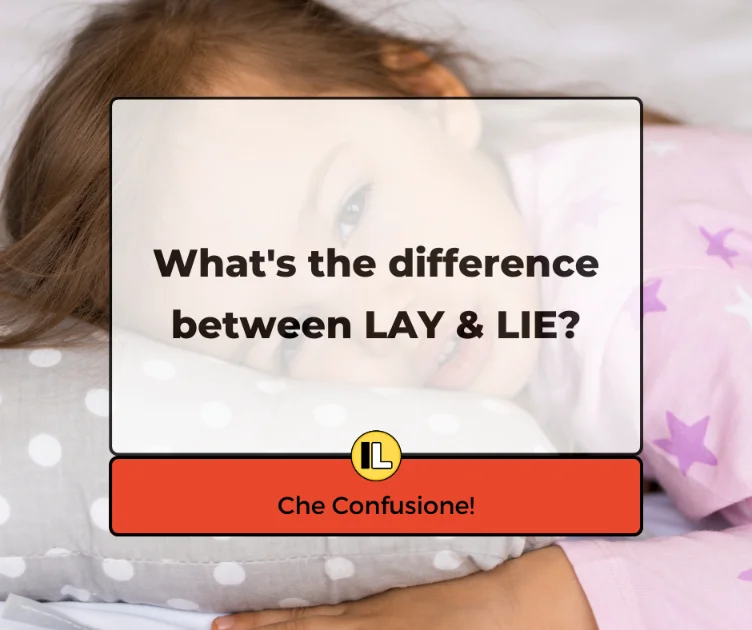What's the difference between LAY and LIE?
Okay guys, on behalf of the English language, I’m so sorry. This is really confusing, even for English speakers. And honestly, there are certain mistakes (that I’ll get into later) that are made so often, that the incorrect way is pretty much accepted as correct. But I’m here to help you speak beautiful English, so I’m definitely up for the challenge of explaining the difference!
Let's start with the basic definitions.
Cominciamo con le definizioni.
![]() TO LAY:
TO LAY:
To place something down in a flat or horizontal position.
(Mettere in posizione orizzontale per terra o su un piano.)
![]() TO LIE:
TO LIE:
To be in a flat or horizontal position.
(Essere sdraiato; essere in posizione orizzontale.)
There’s a second definition for the verb TO LIE, which is mentire, but let’s forget about that for right now. We’ll come back to it later.
Lay is transitive. Lie is intransitive.
Lay è transitivo, mentre lie è intransitivo
When you are trying to decide whether to use the verb “to lay” or “to lie,” the only question you need to ask yourself is: is there a direct object?
If yes: use TO LAY ![]()
- I lay my clothes on the bed. (Metto i vestiti sul letto.)
- I lay the baby on the blanket. (Metto il bambino sulla coperta.)
- She lays her head on his shoulder. (Lei appoggia la testa sulla sua spalla.)
If there is no direct object: use TO LIE ![]()
- I lie down on the bed. (Mi sdraio sul letto.)
- He lies down on the blanket. (Lui si sdraia sulla coperta).
- I could lie here all day long! (Potrei stare sdraiata qui tutta la giornata!)
LAY and LIE are conjugated differently.
C'è una differenza tra i verbi LAY e LIE per quanto riguarda la coniugazione.
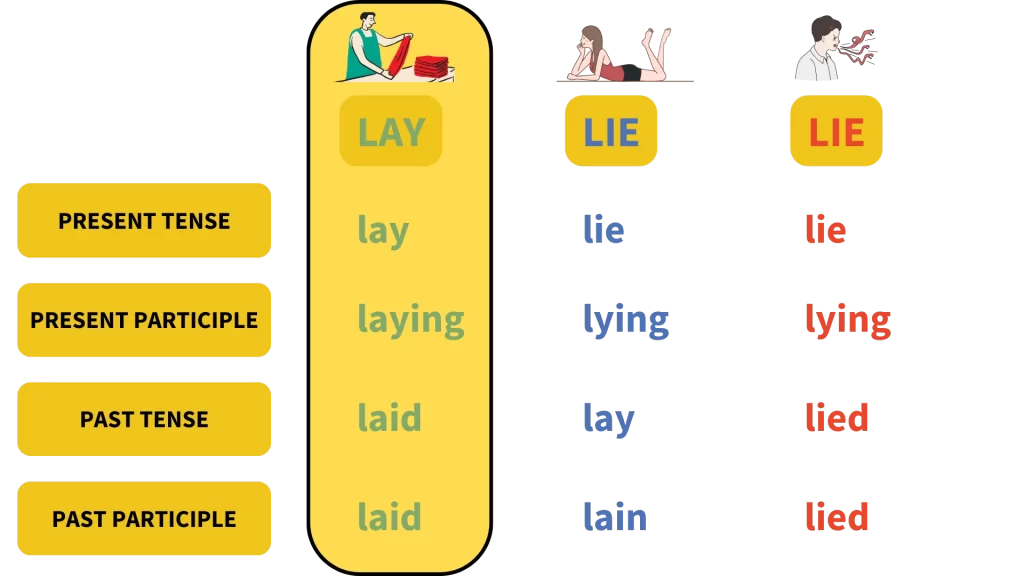
 I am laying the rug on the floor. (Sto mettendo il tappeto sul pavimento.
I am laying the rug on the floor. (Sto mettendo il tappeto sul pavimento.- I laid the suitcase on the bed. (Ho adagiato la valigia sul letto.)
- I have laid the sea bass on top of the salad. (Ho messo il branzino sopra l’insalata.)
Here are some examples of how to properly conjugate to lie:
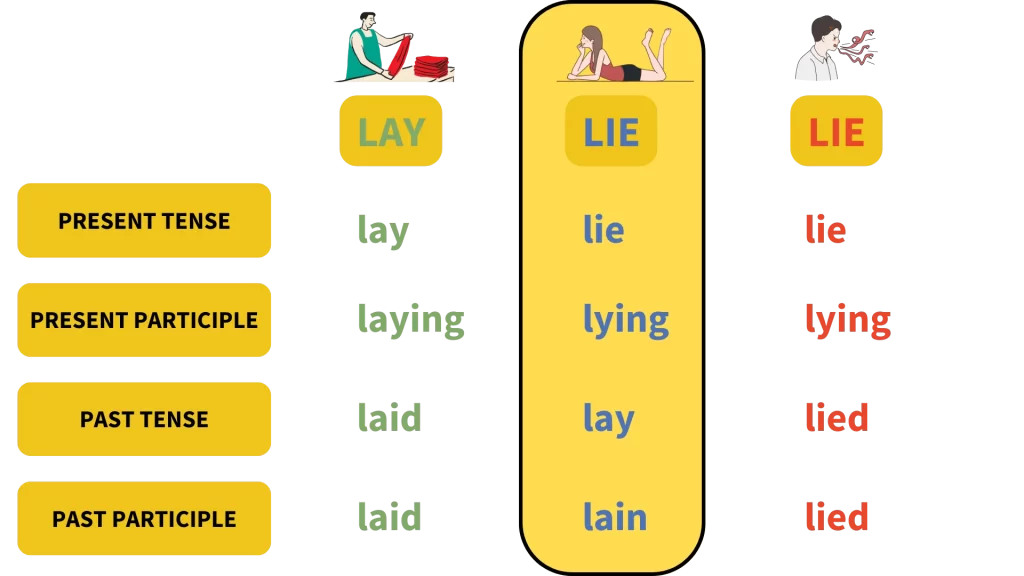
![]()
- The dog is lying (down) on the floor. (Il cane è sdraiato sul pavimento/ il cane si sta sdraiando sul pavimento.)
- She lay there that night, completely alone. (Stava sdraiata lì quella serata, totalmente da sola.)
- They have lain there for hours looking at their phones. (Sono rimasti sdraiati lì per ore, guardando i loro smartphone.)
*Attenzione: I’m gonna be real with you, in the United States at least, you don’t hear many people use lay for the past tense of to lie. It’s also pretty rare, in my experience, to hear people say “I have lain down.” It’s more common to hear “I laid down” or “I had laid down,” even though those sentences are not grammatically correct.

CAREFUL! You should be aware that:
ATTENZIONE! È importante che tu sappia che:
1. "Laid" and "Lay" can have a sexual meaning.
To get laid = slang that means to have sex.
(Fare sesso.)
If you say that someone was a good lay, it means that you enjoyed having sex with him or her, usually in a boastful and somewhat disrespectful way.
(Nel dire “he/she was a good lay,” intendi che qualcuno ha fatto bene il sesso…utilizzato spesso in un modo poco rispettoso quando le persone si vantano delle conquiste sessuali.)
2. "Layed" is not a word.
3. There is another verb "TO LIE" that means MENTIRE and it's conjugated like this:
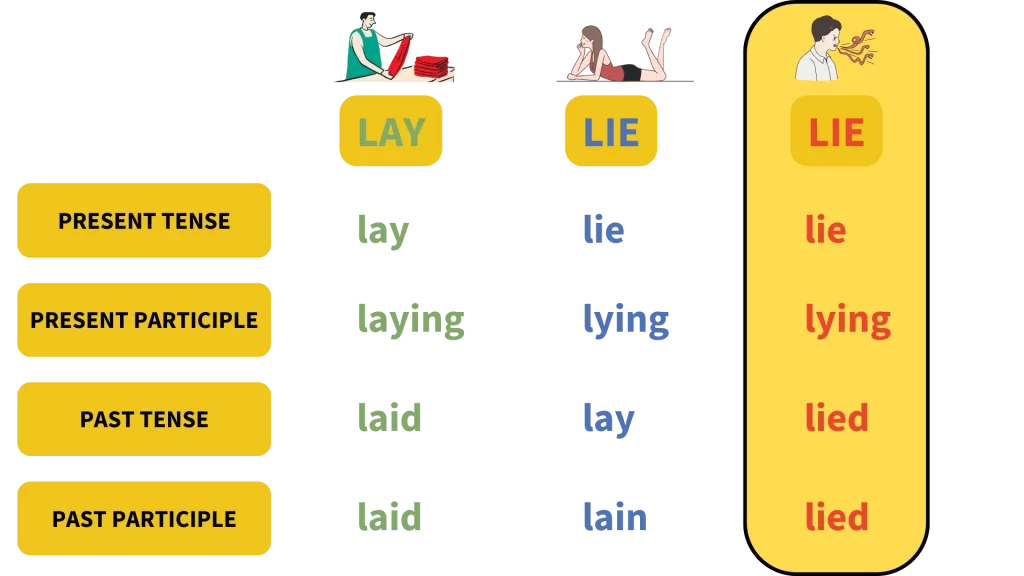
After he lied to her about losing his wedding ring, he lay in bed all night feeling guilty.
(Dopo che le ha mentito, è rimasto sdraiato sul letto tutta la notte, sentendosi in colpa.)
I think you’re lying about being athletic. In fact, I bet you’re lying on your couch right now.
(Credo che tu stia mentendo sul fatto di essere atletico. Infatti, scommetto che tu sei sdraiato sul divano proprio ora!)
You may have noticed that in the second example, these 2 verbs have the same conjugation, even though they have nothing to do with each other.
In summary:
- LAY : lay, laying, laid, have laid
- LIE : lie, lying, lay, have lain
- LIE (MENTIRE): lie, lying, lied, have lied
- ….but never layed !
- LAY is the only transitive verb in the group above.
- Beware of the sexual expressions “get laid” and “a good lay” so you don’t accidentally use them…if you don’t want to!
- Lastly, if you make a mistake with LAY versus LIE, it’s Okay. You’ll still be understood!
È tutto chiaro? Cos’altro ti confonde per quanto riguarda la lingua inglese?
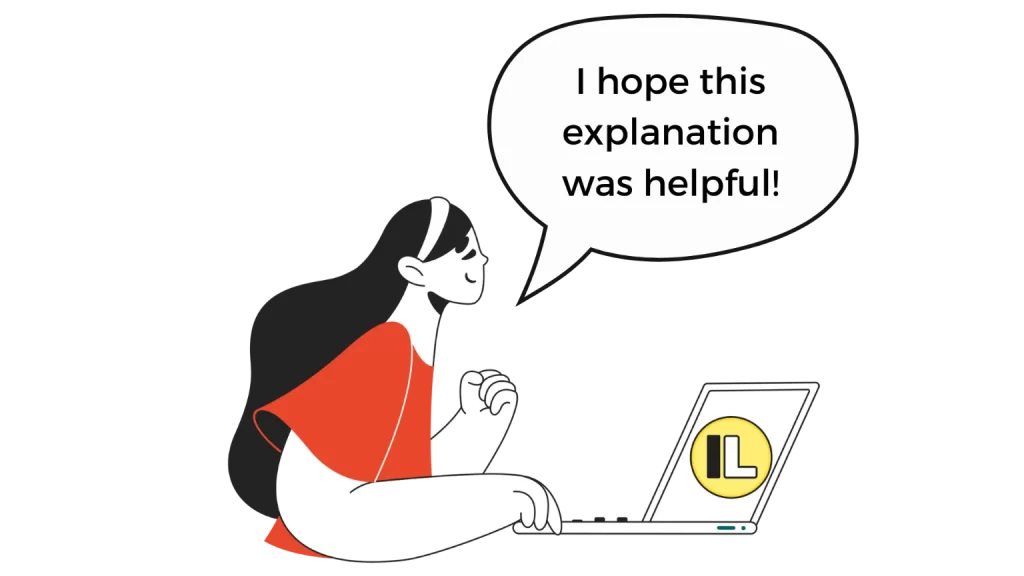
Feedback is always Welcome
Mi faccio in quattro per rendere questo sito d’aiuto. Quindi, se hai qualsiasi feedback o se vuoi che io scriva su un tema o su una parola particolare in inglese, dimmelo nei commenti, oppure sentiti libero di darmi un suggerimento, cliccando qui.
Iscriviti alla newsletter!

Mi raccomando, iscriviti alla newsletter in modo da incoraggiarti a leggere i post per non perdertene neanche uno. Così l’apprendimento diventerà più facile e efficace. Ti prometto di non sommergerti di mail superflue.
